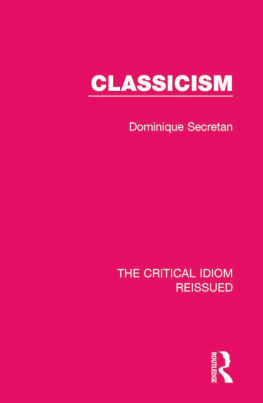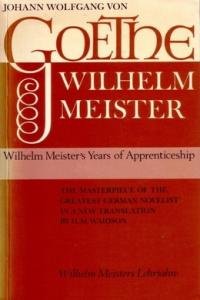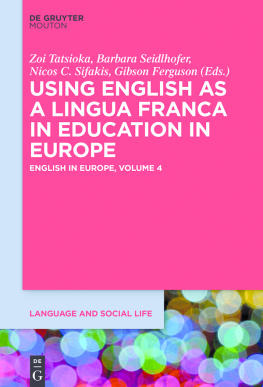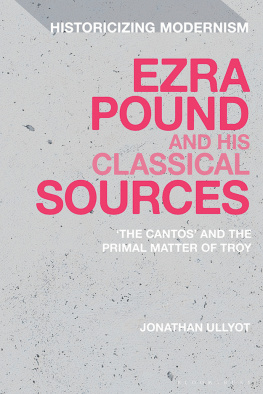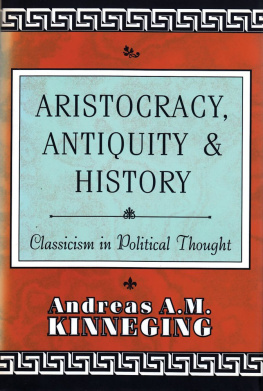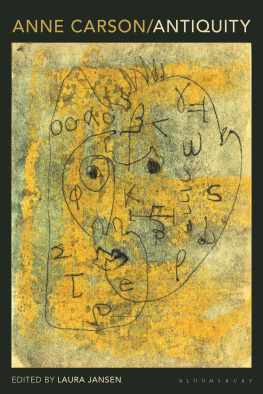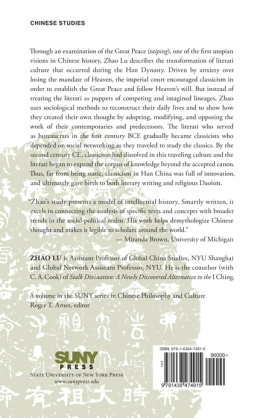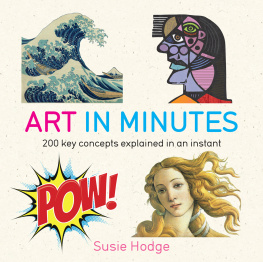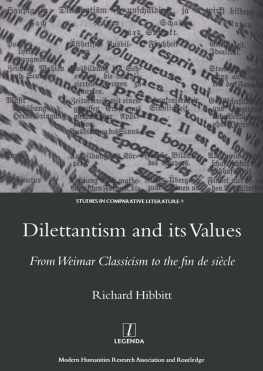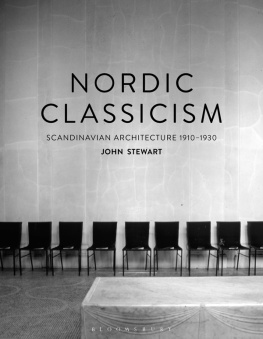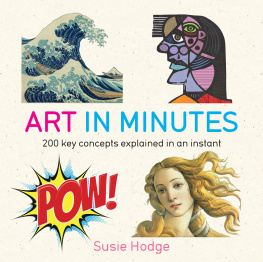Secretan - Classicism
Here you can read online Secretan - Classicism full text of the book (entire story) in english for free. Download pdf and epub, get meaning, cover and reviews about this ebook. year: 2017, publisher: Routledge, genre: Romance novel. Description of the work, (preface) as well as reviews are available. Best literature library LitArk.com created for fans of good reading and offers a wide selection of genres:
Romance novel
Science fiction
Adventure
Detective
Science
History
Home and family
Prose
Art
Politics
Computer
Non-fiction
Religion
Business
Children
Humor
Choose a favorite category and find really read worthwhile books. Enjoy immersion in the world of imagination, feel the emotions of the characters or learn something new for yourself, make an fascinating discovery.
- Book:Classicism
- Author:
- Publisher:Routledge
- Genre:
- Year:2017
- Rating:4 / 5
- Favourites:Add to favourites
- Your mark:
- 80
- 1
- 2
- 3
- 4
- 5
Classicism: summary, description and annotation
We offer to read an annotation, description, summary or preface (depends on what the author of the book "Classicism" wrote himself). If you haven't found the necessary information about the book — write in the comments, we will try to find it.
Classicism — read online for free the complete book (whole text) full work
Below is the text of the book, divided by pages. System saving the place of the last page read, allows you to conveniently read the book "Classicism" online for free, without having to search again every time where you left off. Put a bookmark, and you can go to the page where you finished reading at any time.
Font size:
Interval:
Bookmark:


by Routledge
2 Park Square, Milton Park, Abingdon, Oxon OX14 4RN
711 Third Avenue, New York, NY 10017
A catalogue record for this book is available from the British
Library
ISBN: 978-1-315-26975-7 (Set) (ebk)
ISBN: 978-1-138-28356-5 (Volume 26) (hbk)
ISBN: 978-1-315-11542-9 (Volume 26) (ebk)
by Methuen & Co Ltd
11 New Fetter Lane London EC4
1973 Dominique Secretan
SBN 416 75020 6 Paperback
BARNES & NOBLE IMPORT DIVISION
This volume is one of a series of short studies, each dealing with a single key item, or a group of two or three key items, in our critical vocabulary. The purpose of the series differs from that served by the standard glossaries of literary terms. Many terms are adequately defined for the needs of students by the brief entries in these glossaries, and such terms will not be the subjects of studies in the present series. But there are other terms which cannot be made familiar by means of compact definitions. Students need to grow accustomed to them through simple and straightforward but reasonably full discussions of them. The purpose of this series is to provide such discussions.
Some of the terms in question refer to literary movements (e.g. Romanticism, Aestheticism, etc.), others to literary kinds (e.g. Comedy, Epic, etc.), and still others to stylistic features (e.g. Irony, The Conceit, etc.). Because of this diversity of subject-matter, no attempt has been made to impose a uniform pattern upon the studies. But all authors have tried to provide as full illustrative quotation as possible, to make reference whenever appropriate to more than one literature, and to compose their studies in such a way as to guide readers towards the short bibliographies in which they have made suggestions for further reading.
John D. Jump
University of Manchester
There is no clear-cut definition of the term classicism. Encyclopaedias use phrases such as an aesthetic tendency characterized by a sense of proportion, by a balanced and stable composition, by a search for formal harmony and by understatement; imitation of ancient writers; aversion to the exceptional; well-nigh exclusive interest in psychological and moral analysis; control of sensitivity and imagination; submission to rules governing specific kinds of writing, and so on. Classicism has been equated with Beauty, with Reason, with Health, with Tradition. The term has been over-used by some, spurned by others.
Faced with the vast complex called classicism, I have not attempted to give a definition, large or small. I have merely looked into the numerous elements which enter into it: its backbone, its flesh, the spirit that quickens it. Classicism is one of the aesthetic streams that flow through the changing landscapes of history. I have picked out some landmarks, and staked out some of the limits. The subject-matter is inexhaustible and therefore over-defined: classicism, I found, I could tackle best in the short space allowed by throwing a little light on the multiplicity of its manifestations.
Classicism is not a set of outworn and readily catalogued values: it lives on in many modern works of art.
In his Book of the Courtier (1528), Baldesar Castiglione shows how easy and natural it is for man to glorify the past, to say to himself that whatever his task, it could have been performed more readily in his grandfathers time! I, too, feel tempted to think that, even fifty years ago, a clear-cut and relatively simple definition of classicism could have been offered to the reader of the day. We have become more wary of definitions; we take fewer things for granted, on trust; we tend to look ever farther back in time for the beginnings of any given literary movement, to analyse its components more thoroughly, to examine all those aspects which make it less pure. Thus we talk, for instance, of the classicism of the Romantics and the romanticism of the Classics. The picture may be said to grow at the same time more precise and less clear. Our truth is more complex than our fathers truth.
A further complication is added, artificially perhaps, by the decision to look at the classical periods of three countries, namely France, England and Germany (not to mention forerunners in Greece, Rome and Italy), to compare developments which were neither simultaneous, nor in any way identical, but which were nevertheless interrelated and which share a sufficient number of features for comparisons to be legitimate and worth while. This study is therefore meant to belong to the field of comparative literature.
Font size:
Interval:
Bookmark:
Similar books «Classicism»
Look at similar books to Classicism. We have selected literature similar in name and meaning in the hope of providing readers with more options to find new, interesting, not yet read works.
Discussion, reviews of the book Classicism and just readers' own opinions. Leave your comments, write what you think about the work, its meaning or the main characters. Specify what exactly you liked and what you didn't like, and why you think so.

